Search Results
Search
Filter results
Advanced Filters
Your search returned 883 Solutions
-
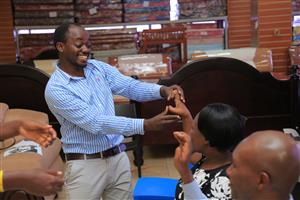
Young people trained as Disability Inclusion Facilitators to motivate employers
The Make 12.4% Work initiative is led by young people with disabilities who are trained and certified as Disability Inclusion Facilitators. They train member organizations to become more inclusive. From 2018 to 2020, 124 organizations have become members and 5,700 people have benefited.
Light for the World Austria, Make 12.4% Work-Initiative, Uganda -
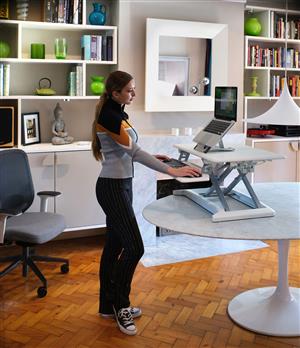
Service package for companies, substantially reducing cost of workplace adaption
MiCase is a service that recommends and implements cost-effective workplace adjustments, such as training, ergonomic provisions, or assistive technology solutions, all of which can be provided by Microlink. In 2020, Microlink had 36 private and public clients for MiCase in the UK, US, and South Africa.
Microlink PC Ltd, MiCase Workplace Adjustments Case Management, United Kingdom -
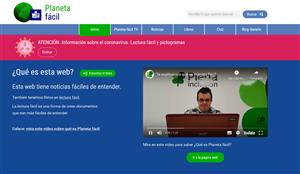
Website and TV-channel with easy access to news and information
Plena Inclusión España, a leading national NGO, launched Planeta Fácil, an easy-to-read news site for people with intellectual disabilities. The website presents current news in easy language, hosts blogs, and has developed an audio-visual programme, in cooperation with a mainstream news agency.
Plena Inclusion Spain, Planeta Fácil, Spain -
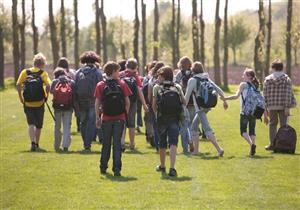
Supporting teachers with comprehensive reports on pupil ́s needs
Using an elaborate database, a report is created describing what helps THIS pupil with THIS teacher in THIS class at THIS moment. The complex diagnose is then narrowed down to what the pupil ́s particular strengths are and what extra measures the child might require. These measures can be evaluated and shared with others.
VCLB Gent - Flamish Center for Student Councelling, Belgium -
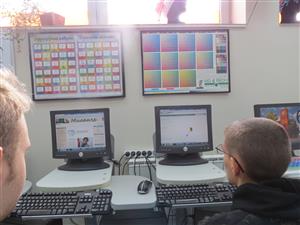
An e-learning platform for audio and video learning materials
The school portal "Milance" has created an e-learning platform, poviding basic information on various topics free of charge. In 2016, these were language skills, mathematics and science in various audio and video formats. In order to reach children outside school, seminars for representatives of disabled people were organised.
School for Elementary and Secondary Education - Milan Petrovic, Serbia -
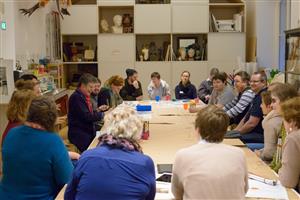
Multi-stakeholder groups developing accessibility solutions in museums
ARCHES is an EU-funded project that brings together partners from the fields of culture, technology, and academia, as well as people with disabilities. The programme develops, tests, and implements solutions to improve access to culture. Innovations include tactile art and an app to aid museum navigation.
KHM - Museum of Art History Vienna, ARCHES, Austria -
Learn, try, and test assistive technology
"Tech Able" lets visitors experience assistive technologies and encourages innovators, manufacturers, and marketers to collaborate. Tech Able also houses a communications lab for persons with disabilities. More than 800 people have benefitted from Tech Able between 2015 and 2018.
SG Enable, "Tech Able“ Showroom, Singapore -
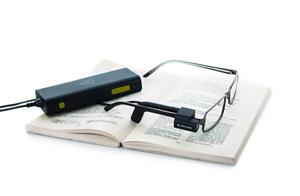
Vision device to understand texts and identify objects
OrCam MyEye enables people who are blind or visually impaired to instantly and discreetly read text from any surface as well as to recognize faces and objects. The device consists of a camera and a microphone mounted on the frame of a pair of eyeglasses and a little box-like base unit, that can be clipped to a belt.
OrCam, MyEye, Israel -
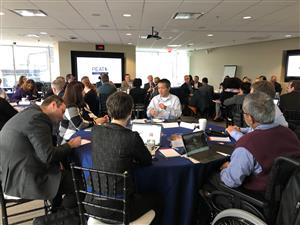
A cross-sector partnership promoting accessible technology in employment
PEAT fosters cooperation among key technology leaders, stakeholders, and government agencies to make new technologies accessible. From 2013 to 2020 the website has had more than a half-million visits, and more than 200 companies use PEAT’s TechCheck benchmarking assessment.
US Department of Labor, ODEP - Office of Disability Employment Policy, Partnership on Employment and Accessible Technology (PEAT), United States of America -
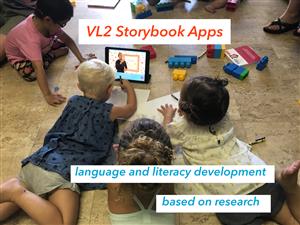
Creating bilingual storybooks in written and sign language
With the VL2 Storybook Creator deaf children can use touch screen tablets to read independently, but also to learn and even create texts in both sign language and printed text. The programme, also trains and supports the deaf community to develop vital skills – including filming, editing and translating.
Gallaudet University, VL2 Storybook Creator, United States of America
- Page 1
- Page 2
- Page 3
- Page 4
- Page 5
- Page 6
- Page 7
- Page 8
- Page 9
- Page 10
- Page 11
- Page 12
- Page 13
- Page 14
- Page 15
- Page 16
- Page 17
- Page 18
- Page 19
- Page 20
- Page 21
- Page 22
- Page 23
- Page 24
- Page 25
- Page 26
- Page 27
- Page 28
- Page 29
- Page 30
- Page 31
- Page 32
- Page 33
- Page 34
- Page 35
- Page 36
- Page 37
- Page 38
- Page 39
- Page 40
- Page 41
- Page 42
- Page 43
- Page 44
- Page 45
- Page 46
- Page 47
- Page 48
- Page 49
- Page 50
- Page 51
- Page 52
- Page 53
- Page 54
- Page 55
- Page 56
- Page 57
- Page 58
- Page 59
- Page 60
- Page 61
- Page 62
- Page 63
- Page 64
- Page 65
- Page 66
- Page 67
- Page 68
- Page 69
- Page 70
- Page 71
- Page 72
- Page 73
- Page 74
- Page 75
- Page 76
- Page 77
- Page 78
- Page 79
- Page 80
- Page 81
- Page 82
- Page 83
- Page 84
- Page 85
- Page 86
- Page 87
- Page 88
- Page 89